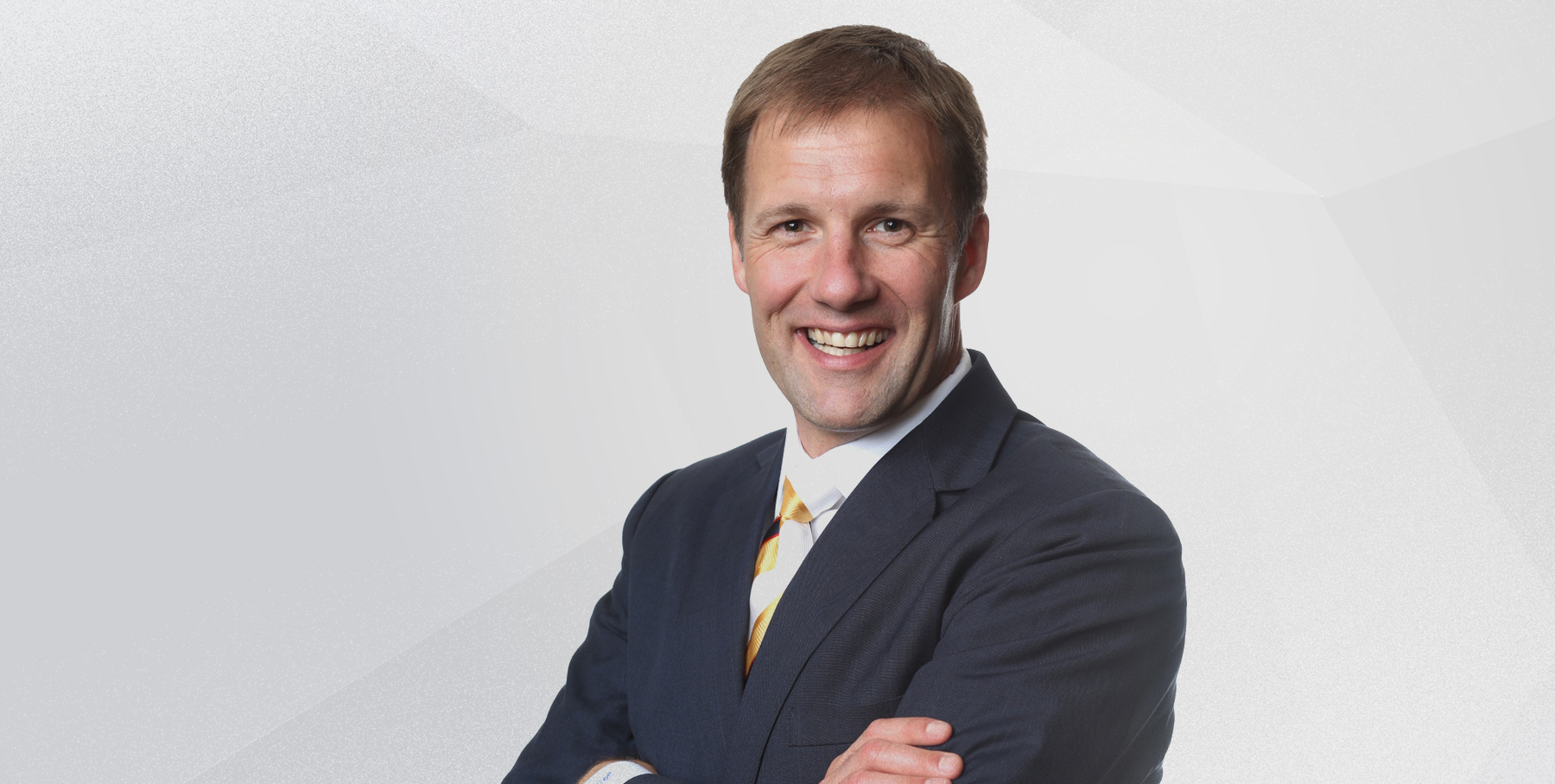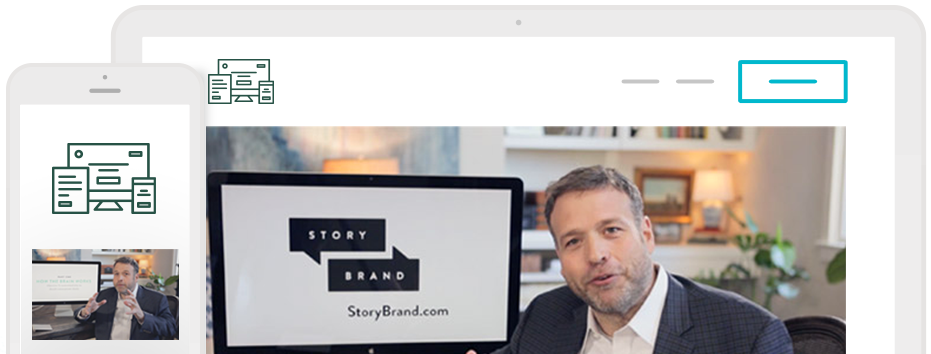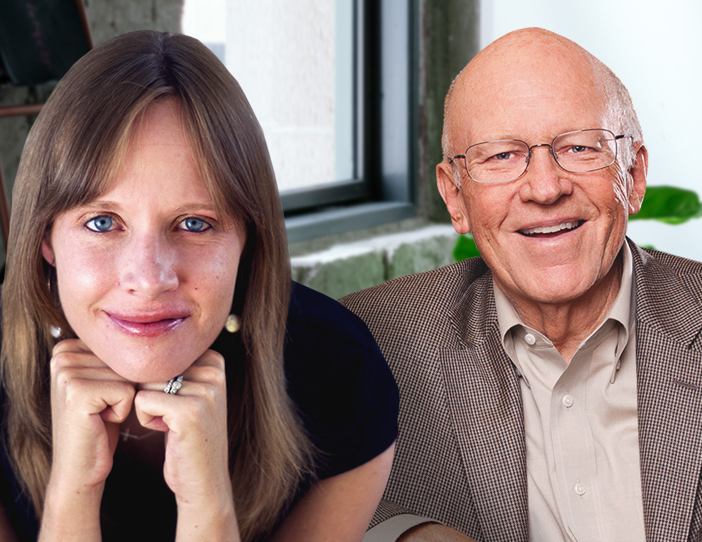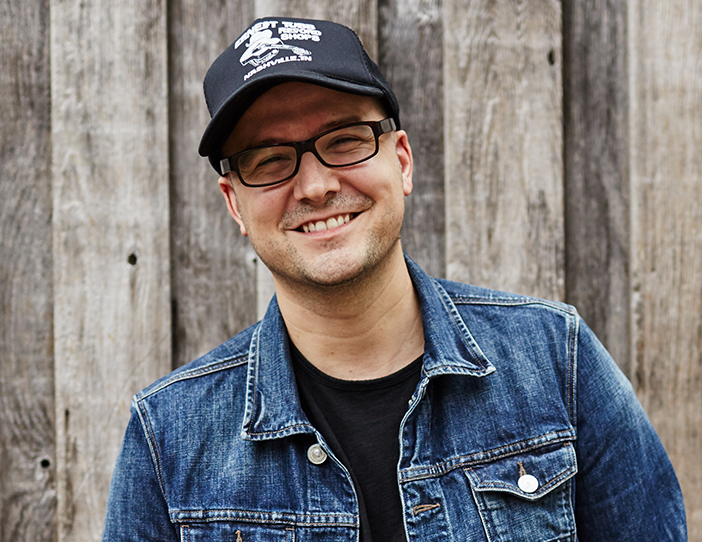
Episode Description
What happens to leaders who lose trust?
Obviously, you jeopardize important relationships. But there can be a dramatic cost to your business as well.
Lack of trust invites skepticism, if not outright outrage, from your customers and causes frustration for your team, contributing to low productivity, lost sales, and high turnover. Yikes.
Just look at the headlines. From the embarrassing video of a United passenger being dragged off the plane to the sexual harassment accusations at Uber’s corporate offices, companies have lost massive amounts of revenue when they lost the public’s trust.
This week’s guest on the Building a StoryBrand podcast is David Horsager, leadership speaker and author of The Trust Edge, and he believes practically every business problem is ultimately a trust problem.
You can have a lot of things going for you — vision, strategy, communication skills, innovation, personnel — but if people don’t trust you or your brand, you will never get the results you want.
David says, “A lack of trust is your biggest expense.”
The good news is you can earn trust over time. Leaders who do get better output, morale, retention, innovation, loyalty, and revenue.
David says it comes down to eight key pillars of trust, which he walks us through in this episode. One important note before we dig in: you need all eight pillars. Being deficient in just one area will dramatically affect your overall trustworthiness.
Listen to this episode, learn how to form a trusting relationship with your team and your customers, and enjoy faster results, deeper relationships, and a stronger bottom line.
Pillar #1: Clarity
At StoryBrand, we often say that clarity will grow your business. But as David points out, clarity builds trust. People trust companies who are clear and distrust those who aren’t.
If you don’t believe me, look at this past presidential election. Donald Trump said two things: one, I’m going to build a wall and two, I’m going to make America great again. Even though other candidates may have been more competent, the voting public found it hard to trust them because they didn’t communicate a clear message.
“People trust the clear and mistrust the ambiguous,” David says.
We get frustrated with leaders when we don’t know what they want from us. He gives the excellent example of kids who don’t like their teachers because they don’t understand the expectations for an assignment. And we’ve all felt miserable in a job because we didn’t understand the bigger purpose.
Be clear about your mission, purpose, expectations, and daily activities and you’ll build trust, inspire your team, and serve your customers better.
Pillar #2: Compassion
David gives a great definition of compassion: to have an intent beyond yourself.
This means you’re willing to step outside of your own needs and look to the needs of those around you. Genuine care turns team members and clients into friends and results in loyalty and satisfaction, both within and outside of your company.
It sounds simplistic, but as David mentions, think about the low public trust we have in attorneys and politicians. We see them as purely self-interested, with no stake in the greater good.
“The most trusted people have the ability to think beyond themselves,” he says.
To show compassion, it’s important to listen, appreciate and serve others, David adds. When you selflessly show people you care, it will not only build trust, it will impact your bottom line.
Pillar #3: Character
A lot of people would assume that character is all you need to build trust.
But what does it mean to have character?
“Character is a cross between moral character and integrity,” David explains. “Integrity is being the same in thoughts, words, and actions,” but that’s only half of it.
You’ve got to pair that consistency with a moral responsibility. In David’s research, the people who best exemplified this pillar all had one thing in common: they did what needed to be done, when it needed to be done, whether they felt like it or not.
The little acts matter. David says every act makes you who you are.
“Your small acts become your habits, and your habits become your being. Make sure your small acts are above reproach, and you will become a person of influence and trust,” he says.
If you consistently do what needs to be done, people will understand your true character and trust you for it.
Pillar #4: Competency
To maintain trust, David says we have to stay fresh, relevant and capable.
That’s the heart of competency.
Though having experience in your field is important, David asserts that learning new ways of doing things, and quickly, is paramount.
“The ability to learn new things amidst rapid change is more important than any specific skill in the new economy,” he says.
Books and people are your best resources for this. David gives lots of suggestions for growing in competency. Be humble and teachable. Find a mentor who is successful or wise in the way you’d like to be. Join a circle of professionals who can help you grow. Stay current with ideas and trends through reading. Prioritize time to learn and reflect.
People trust you when they know you are an expert in your field. To be an expert, you have to keep learning.
Pillar #5: Commitment
How do you respond when the going gets tough?
It’s a defining moment in our trustworthiness. As David points out, “We trust those that stick in the face of adversity,” whether that’s on the scale of Martin Luther King, Jr. fighting for civil rights or the tech CEO who jumps into customer support calls when the service goes down.
“The people who stick with you when things are tough are the ones you can really trust,” David says.
David says this pillar can’t really be taught, only exemplified. You’ve got to show commitment to your employees or customers first to build trust in this area. When your staff see your tenacity even in the worst conditions, they understand the depth of your commitment. And that makes them more willing to become fully committed, too.
Pillar #6: Connection
As business leaders, we fall prey to the myth that we’ve got to do it alone.We put a lot of pressure on ourselves to be the lone genius.
But David tells us that the best ideas and products weren’t brought into being by one person — even though we might think that’s how it happened.
Steve Jobs didn’t invent the iPhone. A team of 2,000 engineers and designers did.
Opening up our office doors and working with others will develop trust within our company and with our customers. David points to an unlikely collaboration between fierce competitors GM and Ford as an example. They combined their R&D teams to build a better, more efficient transmission. They saved $100 million in 90 days and delivered a better product to their customers.
If we’re willing to connect with others, we’ll bring a lot more to the people we serve.
There’s more to connection than invention and product development, though. It’s about relationships and David adds that trust is all about relationships.
“People want to do business with friends,” David says. “They want to associate with those who have the ability to connect.”
To do this, you don’t have to have a certain personality, like being funny or charismatic. David says it’s more important to show gratitude and take a genuine interest in others.
Pillar #7: Contribution
“The bottom line is you have to contribute results if I’m going to trust you,” David says.
Whatever product you deliver, there has to be an expected outcome. You have to perform. It has to work.
You can be kind, compassionate, and have a good character, but you need these qualities as well as outcomes. A salesperson with a compassionate heart needs to sell. A weight-loss product with clear instructions should melt away the pounds. A budget service with the latest software must manage your money.
David says, “People trust results which means you always need to deliver on your promises.”
To be a contributor, you need to make daily goals that are clear, realistic and consistent with your main vision. David says they also need to be quantifiable — specific, measurable and time-dated. You should easily be able tell whether you met them. Finally, you should reward results.
“Contributors make good things happen and give valuable outcomes,” David says. “You must deliver results to build trust.”
Pillar #8: Consistency
David calls consistency the king of the pillars because whatever you do consistently is what people will trust about you.
At Chick-fil-A, you know you’ll get excellent service. At Starbucks, you’re guaranteed the same cup of coffee wherever you stop. At Disneyland, you can expect fun and thrilling rides.
David points out that this is why we can’t stand moody people. We’d rather work with someone who is consistently angry than someone who changes from day to day. With every interaction, you’re increasing or decreasing trust. Every time you lose sameness, you lose trust.
“People want to know you are going to act the same, deliver the same service or product, and conduct yourself the same regardless of the circumstances,” David says.
To build consistency as an individual or a brand, David says don’t agree to anything you can’t deliver. There are no shortcuts to earning a reputation of consistency. The track record of trust is built over time.
“It is the little things, done consistently, that make the biggest difference,” he says.
What Could Loss of Trust Cost You?
Without trust, everything in your business will take longer, cost more, and feel uninspired.
On the other hand, when people trust you and your company, your employees feel the freedom to innovate, and you boost morale and productivity. The trusted leader earns followers. The trusted salesperson closes the deal. The trusted brand gains repeat customers who evangelize for them.
Whether you’re the CEO of a thriving company or the owner of a general store, trust affects your influence and success. But remember, trust can’t be built overnight. It requires time, effort, and diligence. Focus on these eight components, and you will build trust.
Which of these eight pillars need the most attention in your position or business? What are some action steps you can take this week to foster trust? Leave a comment and share what you’re going to do today or this week to begin building trust with your team or customers.

5 Things Your Website Should Include
If your website is missing these key elements, you’re most likely losing easy sales or leads. Our free video series shows you how to fix it.
Executive producer: Tim Schurrer
Additional production and editing: Chad Snavely











